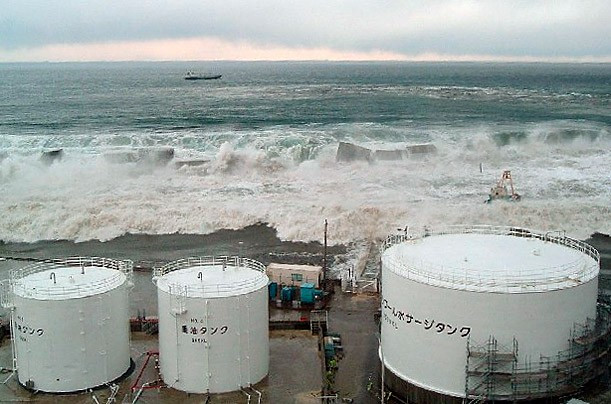More radioctive water leaks from Japan damaged Fukushima plants

Just as the operators of Tokyo Electric Power, better known as Tepco, apologised profusely today during its annual shareholders meeting, tonnes of radioactive water were discovered to have leaked into the ground from Japan's Fukushima nuclear plant, the latest in a series of leaks at the plant damaged in a March earthquake and tsunami, the country's nuclear watchdog said.
The disaster struck more than three months ago and the authorities are still struggling to bring under control damaged reactors at the power plant, 240 km (150 miles) north of Tokyo.
About 15 tonnes of water with a low level of radiation leaked from a storage tank at the plant on the Pacific coast, the Nuclear and Industrial Safety Agency said.
Plant operator Tecpo said it was investigating the cause of the leak which was later repaired.
Vast amounts of water which are contaminated with varying levels of radiation have accumulated in storage tanks at the plant after being used to cool reactors damaged when their original cooling systems were knocked out by the March 11 disaster.
Tecpo has since then been trying to work out a decontamination system that cleans water so it can be recycled to cool the reactors, but despite many efforts the firm has not yet found a working solution.
Raising even more fears, officials have said that as the latest attempt have encountered technical glitches; the water could now spill into the Pacific Ocean unless the system was operating properly.
Just over an hour and a half after it started on Monday, the firm's new decontamination system had to be stopped because of a water leakage.
However, Junichi Masumoto, an official at the utility said Tepco had fixed the problem and restarted the system on Tuesday afternoon.
© Copyright IBTimes 2025. All rights reserved.





















